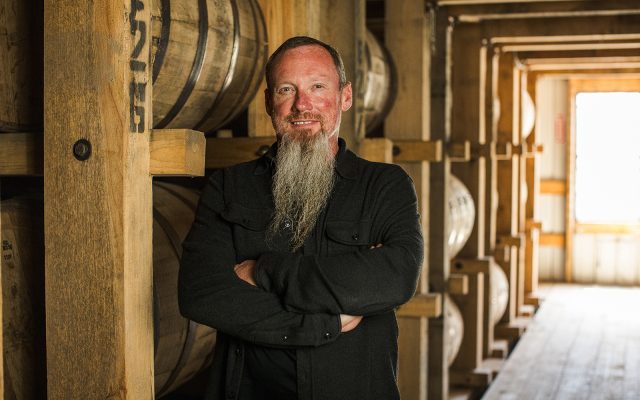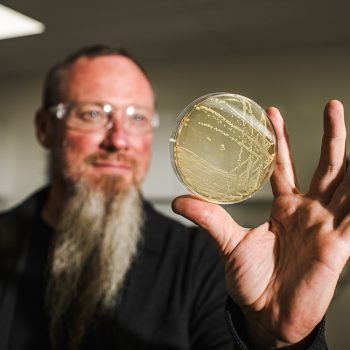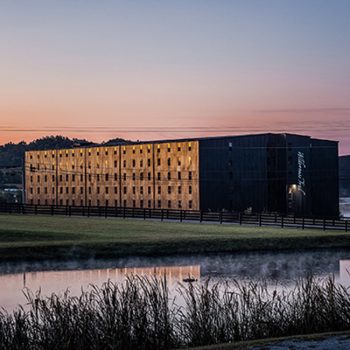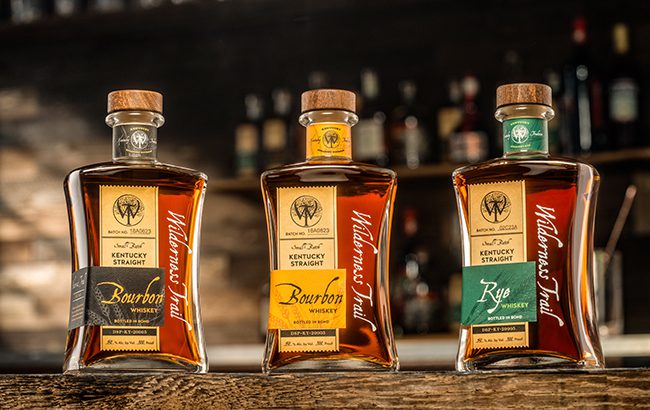The big interview: Dr Pat Heist, Wilderness Trail
A scientific approach, fuelled by yeast expert Dr Pat Heist, has made Kentucky’s Wilderness Trail a runaway success.

*This feature was originally published in the July 2024 issue of The Spirits Business magazine.
It takes some craft whiskey brands years to gain credibility, but Wilderness Trail Distillery, founded in 2013 in Danville, Kentucky, by Dr Pat Heist and Shane Baker, managed to capture the industry’s attention almost immediately.
That’s because Heist and Baker, who met as members of the rock band Zella May, spent a decade as consultants through their company Ferm Solutions, which helps distillers’ problem solve fermentation issues to produce better distillate.
“I personally have been in just over 1,000 distilleries, and it’s rare that we ever get invited to a distillery on a day where everything’s running good,” Heist says.
“Now, would those distilleries have ever let us in the door, had they known we were gonna start another distillery? I don’t know, but now that we have a distillery, it’s like a resource, because we’re not only distillers, but we’re yeast guys that have a distillery, and so we’re more valuable to the other distilleries now.”
With Heist at the helm, the brand has leaned into the scientific aspects of whiskey making, and the approach has paid off. The brand was an instant hit when it released its first whiskeys in 2018, and in October 2022, Wild Turkey owner Campari Group acquired a 70% stake in Wilderness for US$420 million.
“When we started Wilderness, we didn’t start it with the intent on having this massive acquisition and to become the 14th-largest Bourbon producer in the world and to be on the Kentucky Bourbon Trail,” Heist says.
“It started out as two dudes that loved Bourbon that wanted to make the best Bourbon whiskey in the world, and we felt like we had the knowledge base that eclipsed what other people were pulling from.”
Heist guesses that there is no one on the planet more knowledgeable about fermentation, and his impact on the whiskey industry continues to grow. Even as a native Kentuckian, with, as he puts it, Bourbon in his blood, he finds the meteoric rise of Wilderness Trail hard to believe. “For two dudes that didn’t have any outside financing or any other big brands or anything, yeah, it’s really fast,” he says. “It blows my mind.”
 Scientific method
Scientific method
Heist was interested in science from an early age. “When I graduated high school, I got science awards,” he says. He enrolled in the University of Kentucky as a pre-med student but changed to microbiology after discovering the field. He went on to get a masters and PhD in plant pathology, working with field crops such as corn, wheat, and rye. From there, he took a role as a medical microbiology professor at a medical school, and over seven years, started consulting for companies that sold fermentation products to distilleries.
He quickly realised that he could start his own consulting firm, and launched Ferm Solutions with Baker in 2006. “Our goal then was to supply yeast and fermentation products to distilleries and breweries, and supply technical support to any company doing fermentation,” he says. “We realised early on that if you’re going to be successful as a yeast provider, you need to be ready to take that phone call saying ‘Hey, your yeast isn’t working’, and turn that around and figure out what the problem is.”
They amassed knowledge and data, offering insights that at the time weren’t readily available. “Any time we encounter a distillery or a brewery, we want to study the microbiology. Not only what yeast strain are they using, but what contaminating organism might be in there,” he says.
Much of his work with Ferm Solutions is confidential, but he shares one story of helping Stephen Beam at Limestone Branch Distillery in Lebanon, Kentucky.
Beam wanted Heist to resurrect a yeast strain using his family’s old yeast jug that had previously been kept at the Oscar Getz Museum of Whiskey History in Bardstown. Because the jug had been sitting encased for decades, it had dried out, losing any living organisms in the process.
But Heist was able to gather enough residue to extract DNA and create nucleotide sequences with that DNA to then match the sequences to known strains that they had in their collection.
“Through that genetic-based, molecular biology-based approach, we were able to link up what would have been a strain that was very close to what their family had used in the past,” he says. It is this type of problem solving that continues to fuel Heist’s curiosity and relationships.
Helping hand
 Heist has helped distillers around the world better understand yeast, while simultaneously teaching students at Moonshine University in Louisville, Kentucky. Through Ferm Solutions, he and Baker have done their part to make distillers cleverer. He admits, though, that by helping others, he has created less of a need for his services.
Heist has helped distillers around the world better understand yeast, while simultaneously teaching students at Moonshine University in Louisville, Kentucky. Through Ferm Solutions, he and Baker have done their part to make distillers cleverer. He admits, though, that by helping others, he has created less of a need for his services.
“Any time we help a customer solve a problem it seems like the next time it happens they’re better equipped to take care of it themselves,” he says. “So even though, yes, we have imparted a lot of knowledge onto the industry, and they are using that to make their products better. It really impacts the industry as a whole when you look at the quality that people are making, the consistency of quality. That’s very important for our industry.”
Heist says he wanted a distillery for selfish reasons, but also as a way to educate his customers. The first iteration of Wilderness Trail used a pot still, and what started as producing one barrel a day grew to 200 before a single drop was released. He credits his working relationship with Baker, who is a mechanical engineer by trade, for Wilderness Trail’s initial success but says that early press and word of mouth were paramount in propelling the brand forward. All of his students became unofficial brand ambassadors, while those in the industry who knew their work from Ferm Solutions were eager to see, and taste, the whiskey they were making. “People were clamouring to get bottles at first, and actually, they still do in some places,” he says. “We’re already in the industry. We do business with 600 distilleries, and all those distilleries, whether they be here in the United States or in other parts of the world, those people are our friends that look at us, like, ‘I want to see what they’re making because they know every damn thing.’”
They built a distillery in Danville, and began contract distilling once clients inquired about who could produce a few thousand barrels at a time. “Being the guys who distilleries call for questions related to fermentation, over the years we have become the guys who distilleries call for any question about anything,” he says. “We could capitalise our expansion if we took on some of this contract production. So that’s what we did. And we expanded two times.”
It helps, of course, that Heist’s whiskey was good. Wilderness Trail’s core portfolio of whiskeys is relatively simple: a high-rye Bourbon, a high-wheat Bourbon, and a rye whiskey, all released as single barrels.
“We were surprised how good they were as young as they were,” he says. Today, the core lineup is bottled at around five years, with the oldest barrels just recently passing the 10-year mark. Heist says that unlike most craft brands, they laid down a lot of whiskey early, and were in 44 states before the multi-million-dollar Campari deal.

The company was looking at a recapitalisation strategy, he says, when the Italian drinks firm approached them. “There were a lot of people that were interested, let’s just say, and Campari was a really good fit for us,” he says. “In a lot of craft deals, when the big guy comes in, that’s when they do their expansion, that’s when they ramp up, and we were already where we’re at now, which is great, because we’ve already achieved the production side of things. It makes the job easier for everybody.”
As for Heist’s job, not much has changed. He’s still got the beard that extends down from his chin, and he’s still nerding out about fermentation. If anything has changed, it’s his position in the industry from consultant to craft distiller to a member of the Campari portfolio.
While the Wilderness Trail journey is still fairly new, Heist’s decades of experience and passion for the work speak for themselves.
“I feel like we’re sort of becoming elder statesmen of the industry,” he says. “Two Bourbon guys that wanted to create the best Bourbon in the world.
“We feel like we’ve done our best working towards that goal, and we were just at the point in time where selling made perfect sense. And nobody’s really faulted us for that.
“Everything seems to be progressing exactly like we’ve planned.”
Related news
Cocktail stories: Speed Bump, Byrdi
